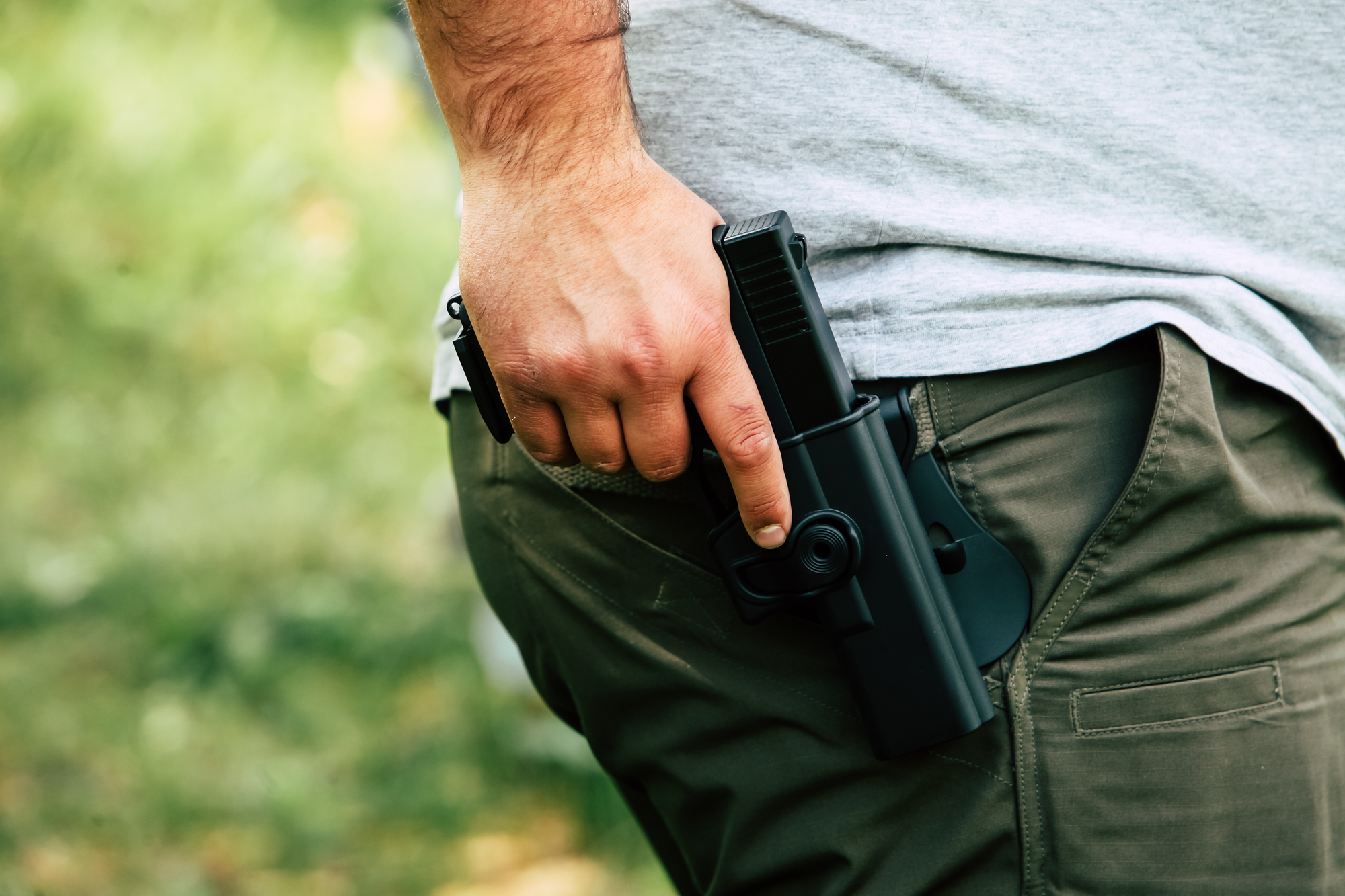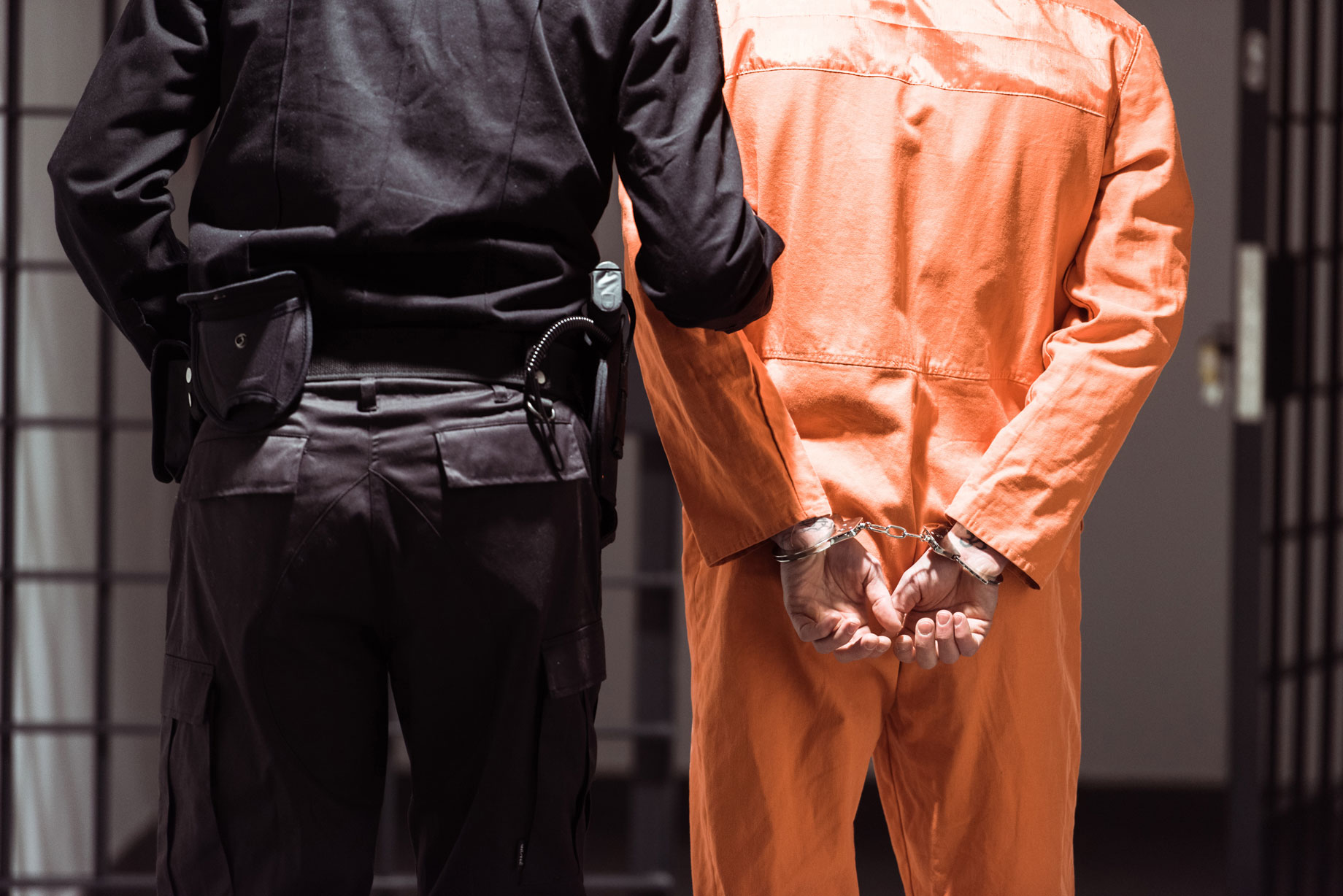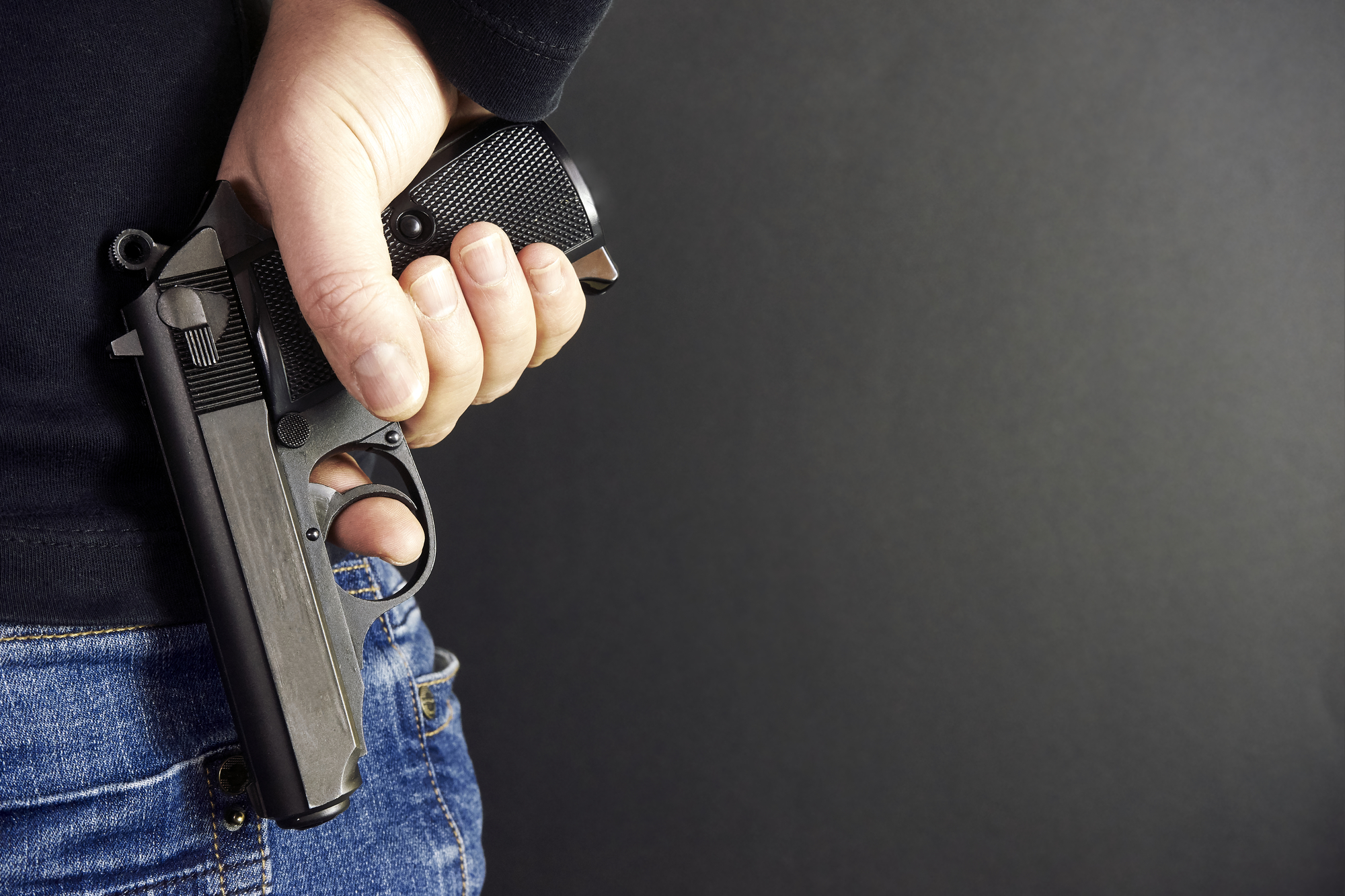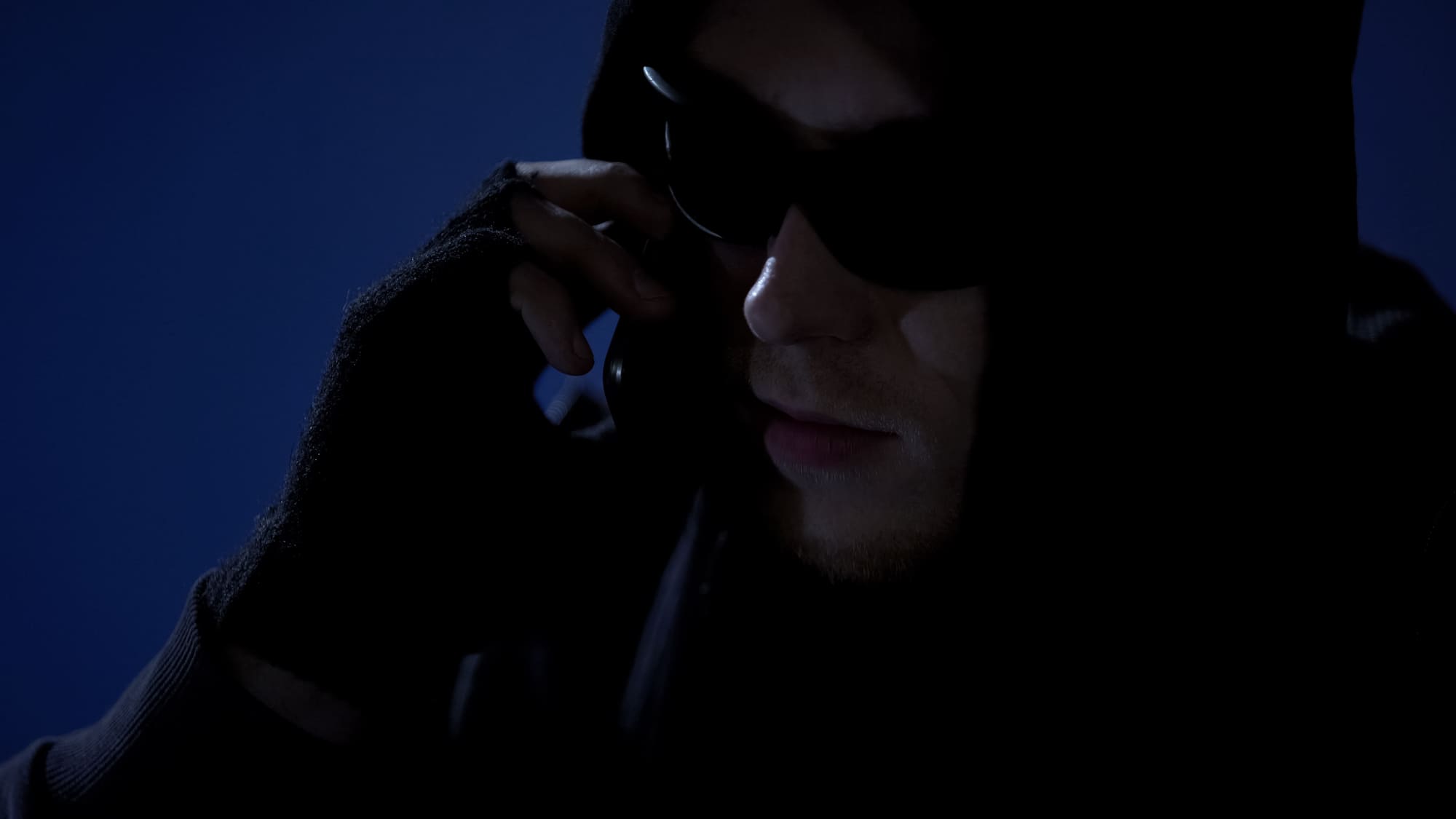If you or a loved one find yourselves in a difficult situation, we understand the urgency and stress that comes with it. At Angels Bail Bonds, we specialize in providing the support and assistance needed to secure bail for possession of a firearm by a felon charges.
Learn the basics about the bail process for felony possession of a firearm by a felon charge, and then contact Angels Bail Bonds today. Let us be your trusted partner in navigating the process for bail for possession of a firearm by a felon charges. We are here to help you regain your freedom and prepare for your legal journey.
What Is Bail?
Bail in California refers to the amount of money or property that a defendant or their surety (a person responsible for the defendant’s appearance in court) must deposit with the court to secure the defendant’s release from custody while awaiting trial.
The purpose of bail is to ensure that the defendant appears in court for all scheduled hearings and does not flee before the trial. A county bail schedule (LA and Orange) or table determines bail money amounts. Still, a judge can deviate from the schedule based on various factors, including the severity of the offense, the defendant’s criminal history, and whether the defendant is a risk to public safety. If the defendant fails to appear in court, the bail is forfeited, and a warrant may be issued for their arrest.
What Are Bail Bonds?
When you find yourself in a situation where you can’t afford to pay for your bail, bail bonds might be the solution for you. A bail bondsman will charge you a fee in exchange for providing the payment. Bail bond companies in California charge only 10% of the total bail amount to post-bond for a defendant. So, if the cost of bail is $20,000, the bondsman will charge $2,000 instead of the full amount. While this may still seem like a lot of money, it’s much more affordable than paying the entire bail amount, especially on extremely high bail amounts for some serious felonies.
Those rates can be as high as 20% for some immigration and federal charges because these rates are set by law, and all bail companies must charge the same amount. Despite the costs, using a bondsman can be a lifesaver for those who cannot afford to be released from custody on bail for possession of a firearm or need any help navigating the bail process.
What Happens At A Bail Hearing?
A crucial part of the bail process is the bail hearing, when the amount of bail is normally set at the person’s initial court appearance, often known as the arraignment stage or pre-trial detention. A judge can either release a person on their own recognizance (OR) with a promise to appear in court at a later date or deny their OR.
If the charges are infraction offenses or even some misdemeanor offenses—such as a DUI with no accident injuries or significant property damage— the person will usually be released without bail after being arrested. More serious felony charges that might mean a danger to public safety, like assault with a deadly weapon or with bodily injury to the victim, or even murder, will not have OR as an option and can only get a release from jail on bail.
You must pay the bail amount or post a bail bond on the bail schedule. An arresting officer might ask for a higher amount than what the schedule suggests.
What Factors Influence a Defendant’s Bail Amount?
The bail bond process starts when a defendant is in front of a judge to determine bail. Then, several factors are put into play, including the severity of the crime, criminal history, whether the defendant is a flight risk, community ties, financial resources, their potential danger to public safety, and even mental health, which are considered when determining bail amount.
The bail schedule further gives guidance for all criminal charges, with the judge having some leeway in the specific amounts, as mentioned. And even if they’re allowed out on bail, the defendant might have to be placed under house arrest, be prohibited from owning any deadly weapons or placed under electronic monitoring.
A good bail bonds company and a criminal defense attorney can help you navigate and understand these factors, possibly even lowering the bail amount.

Have you been charged with criminal Felony Possession of a Firearm by a Felon PC 29800?
If you’ve been charged with a felon in possession of a firearm offense, you or a loved one must contact the experts at Angels Bail Bonds immediately. Our team of bail bondsmen and criminal defense lawyers provide assistance during pre-trial detention at no extra cost, including nationwide.
What is Felon in Possession of a Firearm?
Under PC 29800 in California, the crime of felon in possession of a firearm refers to the act of a convicted felon possessing, owning, purchasing, or receiving a firearm. It is illegal for someone who has been convicted of a felony crime to possess or have control over any firearm.
California Penal Code 29800 states:
(a) (1) Any person who has been convicted of a felony under the laws of the United States, the State of California, or any other state, government, or country, or of an offense enumerated in subdivision (a), (b), or (d) of Section 23515, or who is addicted to the use of any narcotic drug, and who owns, purchases, receives, or has in possession or under custody or control any firearm is guilty of a felony.
(2) Any person who has two or more convictions for violating paragraph (2) of subdivision (a) of Section 417 and who owns, purchases, receives, or has in possession or under custody or control any firearm is guilty of a felony.
(3) Any person who has an outstanding warrant for any offense listed in this subdivision and who has knowledge of the outstanding warrant and who owns, purchases, receives, or has in possession or under custody or control of any firearm is guilty of a felony.
A criminal conviction of unlawful possession of a firearm by a felon requires the following elements to be proven:
Previous Felony Conviction: The defendant must have been convicted of a felony offense. This can include crimes such as murder, robbery, burglary, drug offenses, or any other felony offense under state law.
Possession of a Firearm: The defendant must have actual or constructive possession of a firearm. Actual possession means having immediate physical control over the firearm, such as holding it in one’s hand. Constructive possession means having the ability to exercise control over the firearm, even if it is not physically present.
Knowledge of Possession: The defendant must be aware that they are in possession of a firearm. A person may be deemed to have knowledge if they intentionally obtained or controlled the firearm or if they were aware of its presence and had the ability to exercise control over it.
Firearm Qualifications: The firearm in question must meet California’s definition, which includes handguns, rifles, shotguns, and assault weapons.
It is important to note that there are some limited exceptions and defenses to this charge, such as certain rehabilitative programs in cases of drug addicts or if the person’s felony conviction was expunged or reduced to a misdemeanor. It is advisable to consult with a criminal defense attorney for guidance if facing charges related to felon in possession of a firearm.
Types of Felony Possession of a Firearm by a Felon Charges in California
All convictions of unlawful possession of a firearm by a felon are felony firearm charges, with the severe penalties that come with such convictions.
But there are additional crimes related to felon in possession of a firearm under California law, including, but not limited to, the following:
Carrying a Loaded Firearm PC 25850
Penal Code 25850 prohibits the act of carrying a loaded firearm in public places. This law makes it illegal to possess a firearm that is loaded and readily accessible to use, whether openly or concealed, in any public area, such as streets, sidewalks, parks, or public buildings. The term “loaded” refers to a firearm that has ammunition in the chamber, attached magazine, or both. It is important to note that certain exceptions exist for law enforcement officers, individuals with valid concealed firearm permits, and individuals engaged in lawful activities such as hunting or target shooting at authorized locations.
Violation of PC 25850 is considered a misdemeanor offense but can be charged as a felony in certain circumstances, such as when the person has a prior felony conviction or is a prohibited person under state or federal law. The penalties for violating this law can include jail time, fines, and the potential loss of the right to possess firearms in the future.
PC 29805 Firearm Possession After Misdemeanor Convictions
California Penal Code 29805 pertains to the unlawful possession of firearms after being convicted of certain misdemeanors and is subjected to a ten-year ban on possessing firearms.
Under this law, individuals who have been convicted of certain misdemeanor offenses are prohibited from possessing firearms for a specific period of time. These misdemeanors include offenses such as assault, battery, domestic violence, criminal threats, and stalking.
According to PC 29805, individuals who have been convicted of these misdemeanor offenses are prohibited from possessing firearms for a period of ten years from the date of conviction. This ten-year ban applies to both handguns and long guns.
It is important to note that this law applies even if the conviction occurred in another state or if the individual’s rights have been restored in the jurisdiction of the conviction. Violation of PC 29805 is a crime and can result in time in county jail and/or fines and can be either a misdemeanor itself or a felony conviction.

Penalties in Felony Possession of a Firearm by a Felon Cases
Under PC 29800, the penalties for being convicted of possession of a firearm by a felon in California can vary depending on the circumstances and the defendant’s criminal history. But it will always be a felony offense.
- First offense:
– A felony conviction
– Imprisonment in county jail for 16 months, 2 years, or up to 3 years
– A fine of up to $10,000 - Second offense or subsequent offense:
– A felony conviction
– Imprisonment in state prison for a term of 16 months, 2 years, 3 years, or more
– A fine of up to $10,000
Additionally, California has enhancements for certain factors, such as prior violent felony convictions or the possession of certain types of firearms (assault weapons, grenades, etc.,) which can lead to increased penalties.
It’s important to note that these penalties are subject to change and can vary depending on the specific details of the case. It is always advisable to consult with an attorney for accurate and up-to-date legal advice.
You Need An Experienced Bail Bond Agent That Specializes In Felon in Possession of a Firearm Defense
The bail bond process for possession of a firearm by a felon charge is serious and without expert help at your side, as the standard bail for possession of a firearm by a felon is $35,000 to $50,000. Nonetheless, a bail bond agency and a criminal defense attorney can aid you during this difficult time and help you and your loved one obtain that money.
Legal Defense Against Possession of a Firearm by a Felon
Avoiding conviction, and thus jail time, requires a smart and tough legal defense that picks apart the prosecution’s case of possession of a firearm by a felon, with the following points being key:
Lack of knowledge or awareness
The defendant could argue that they were not aware of the presence of the firearm, that they did not know it was in their possession, or it was only momentary possession and not within their actual control. This defense may be applicable if, for example, the firearm was found in a shared vehicle or residence of someone with lawful possession.
Justifiable possession
Similar to momentary possession, you can admit you had the firearm in your possession but only as an emergency measure to prevent a crime, deliver it to the police or law enforcement officer, or secure it.
Unlawful search and seizure
The defendant could challenge the legality of the search that led to the discovery of the firearm. If the search was conducted without a valid warrant or without probable cause, any evidence obtained may be deemed inadmissible in court.
Violation of Miranda rights
Suppose the defendant made any self-incriminating statements during the arrest or subsequent police questioning without being properly informed of their Miranda rights by the public officer (such as the right to remain silent). In that case, those statements may be suppressed as evidence.
Invalid prior felony conviction
Another common defense in these cases is arguing that their prior conviction, which serves as the basis for the possession charge, is invalid or does not meet the necessary criteria to qualify as a felony under California law. This defense would require a thorough analysis of the defendant’s prior criminal record.
Constitutional challenge
The defendant could challenge the constitutionality of the law itself, arguing that it violates their Second Amendment right to bear arms. However, it is important to note that the courts have generally upheld laws restricting firearm possession by felons as constitutional.
Entrapment
If the defendant can prove that law enforcement officers induced or coerced them into possessing the firearm, they may argue entrapment as a defense. Entrapment occurs when the government convinces someone to commit a crime they would not have otherwise committed.
It is essential to consult with a qualified criminal defense attorney to determine the most appropriate defense strategy based on the specific circumstances of the case.
Free Consultation & Case Review
Do you know someone who has been arrested for felony possession of a firearm by a felon? Look no further because we are here to help. At Angel Bail Bonds, we work with experienced bail bondsmen and criminal defense attorneys to be your best option, even in cases where you need bail for theft, bail for embezzlement, or bail for possession of a firearm by a felon. We’re an affordable bail bonds company that offers flexible payment plans and affordable rates to make the process more manageable for you and your loved ones.
If you have any questions about the bail bond process or if you need assistance or legal representation from a law firm for helping a loved one in Southern California or anywhere else in the state or the United States, don’t hesitate to call us or contact us at our website today.




